Multiplication practice Normal Math Worksheets for Ages 5-8 - Page 2
30 filtered results
-
From - To
Parents and teachers should prioritize multiplication practice for children aged 5-8 because it lays a crucial foundation for future mathematical learning. Mastery of multiplication at an early stage helps children develop strong numerical fluency, which is essential across all areas of math. By understanding the concept of multiplication, children can better grasp more advanced topics such as division, fractions, and algebra.
Furthermore, early multiplication practice fosters critical thinking and problem-solving skills. Engaging in activities that require multiplication enables young learners to see patterns, make connections, and understand relationships between numbers, all of which are key components of higher-level math.
Incorporating multiplication into a child's education also boosts their confidence. Successfully mastering multiplication tables and simple problems can give children a sense of achievement, encouraging them to tackle more challenging tasks with a positive attitude. Additionally, this early exposure sets children up for academic success, not just in math but across other subjects that rely on quantitative reasoning.
Lastly, multiplication practice fosters patience and perseverance. Learning to multiply accurately requires practice and repetition, instilling a sense of diligence and dedication. Overall, giving attention to multiplication practice during these formative years ensures children build a strong mathematical foundation, equipping them with essential skills for their academic journey and everyday life.
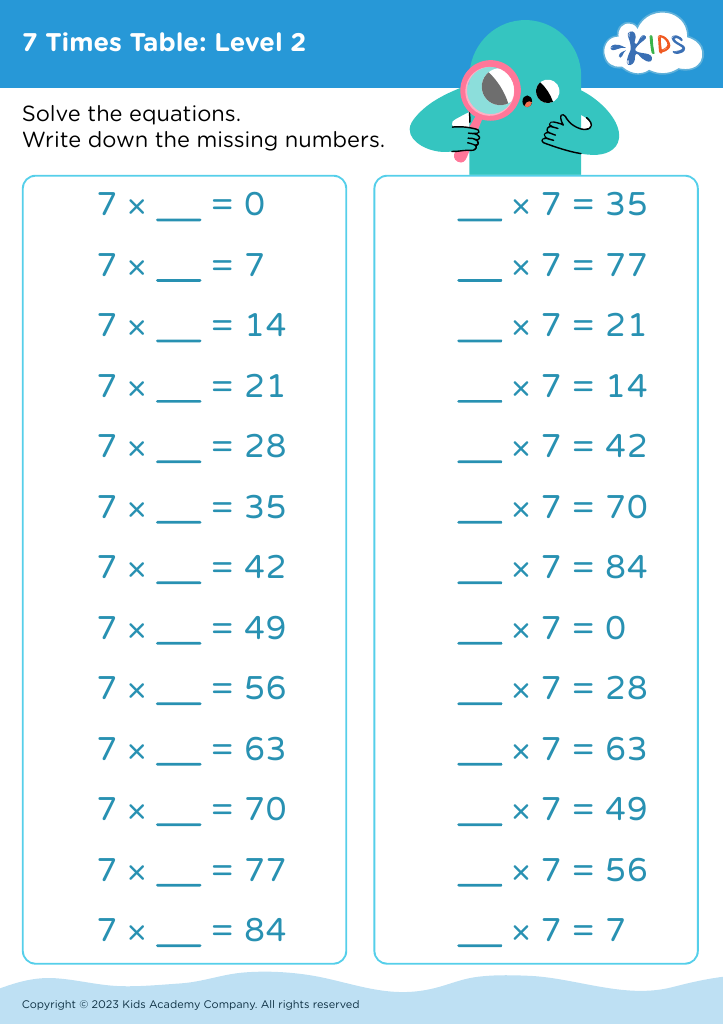
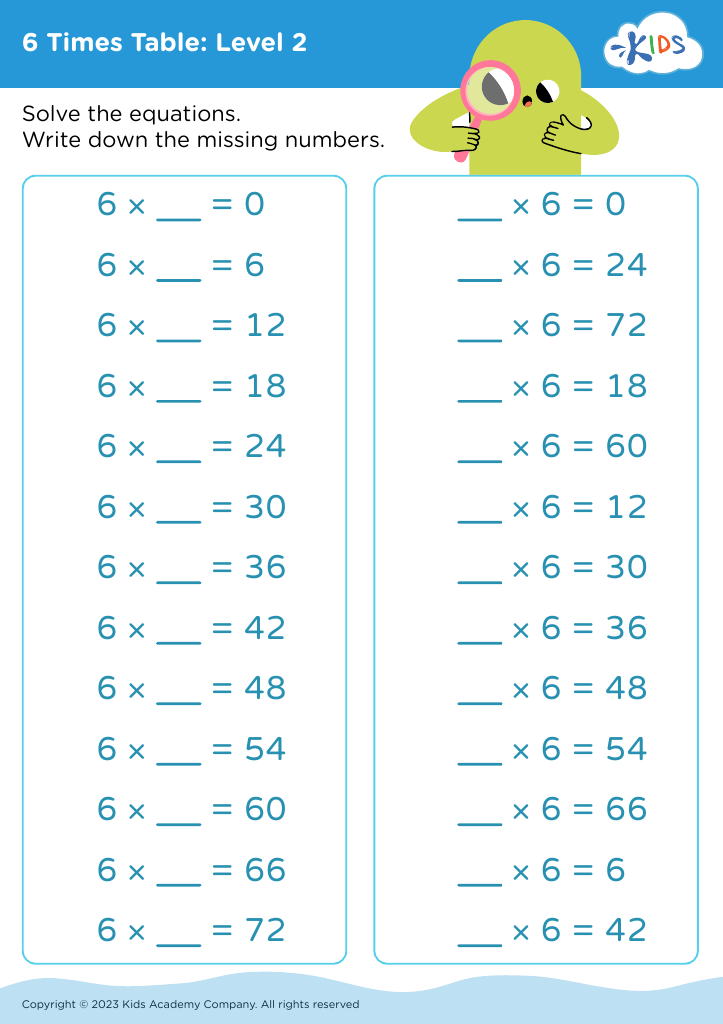
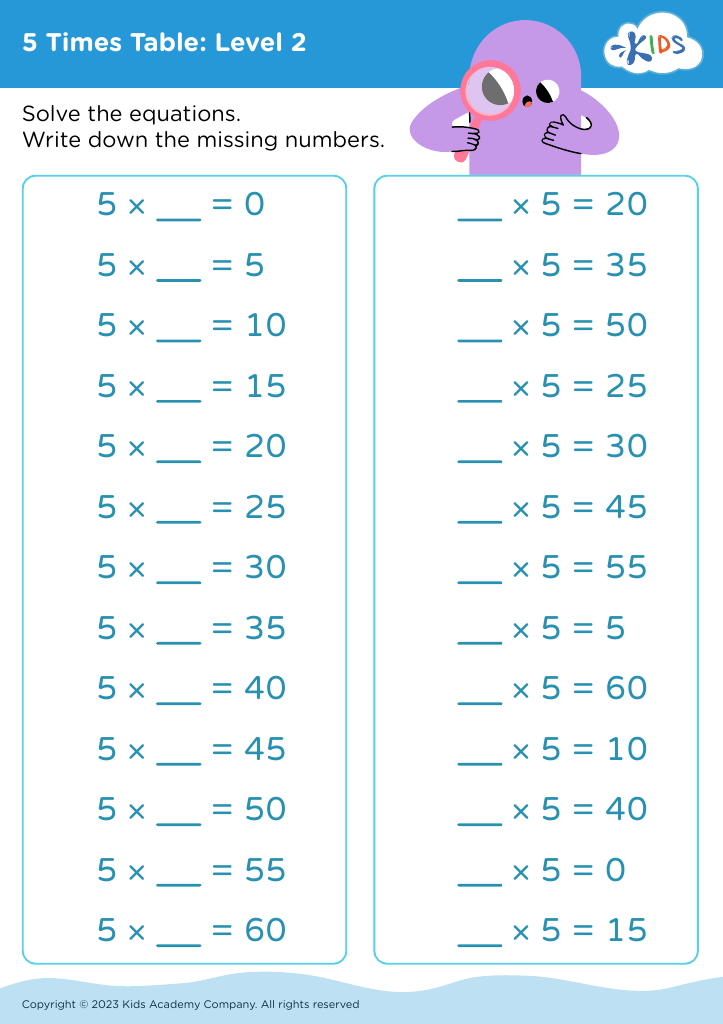
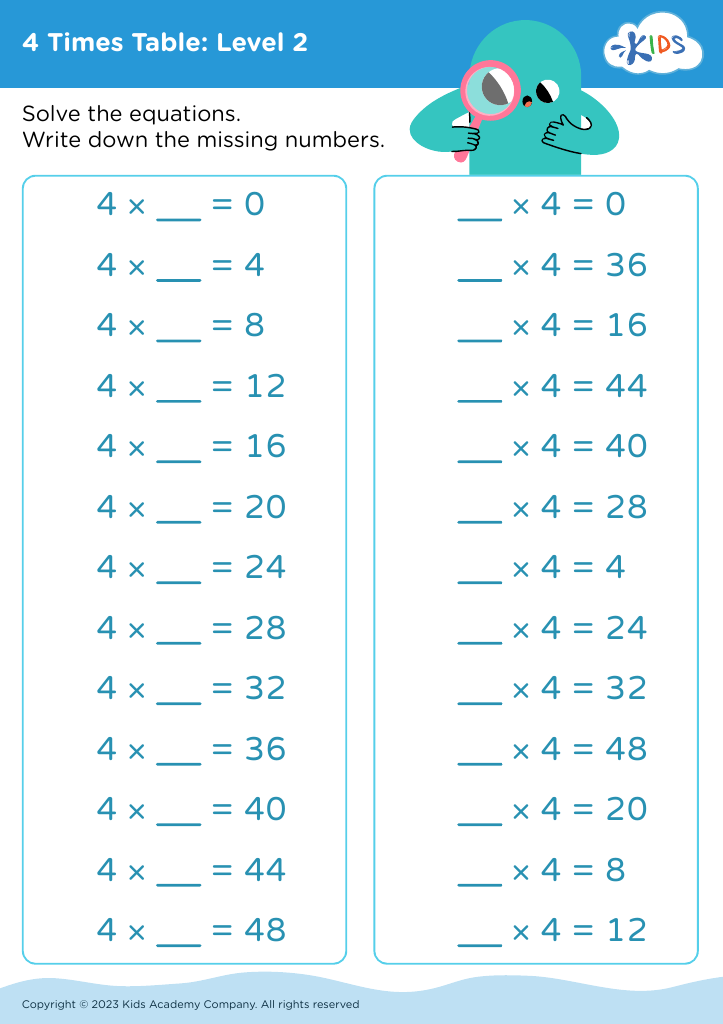
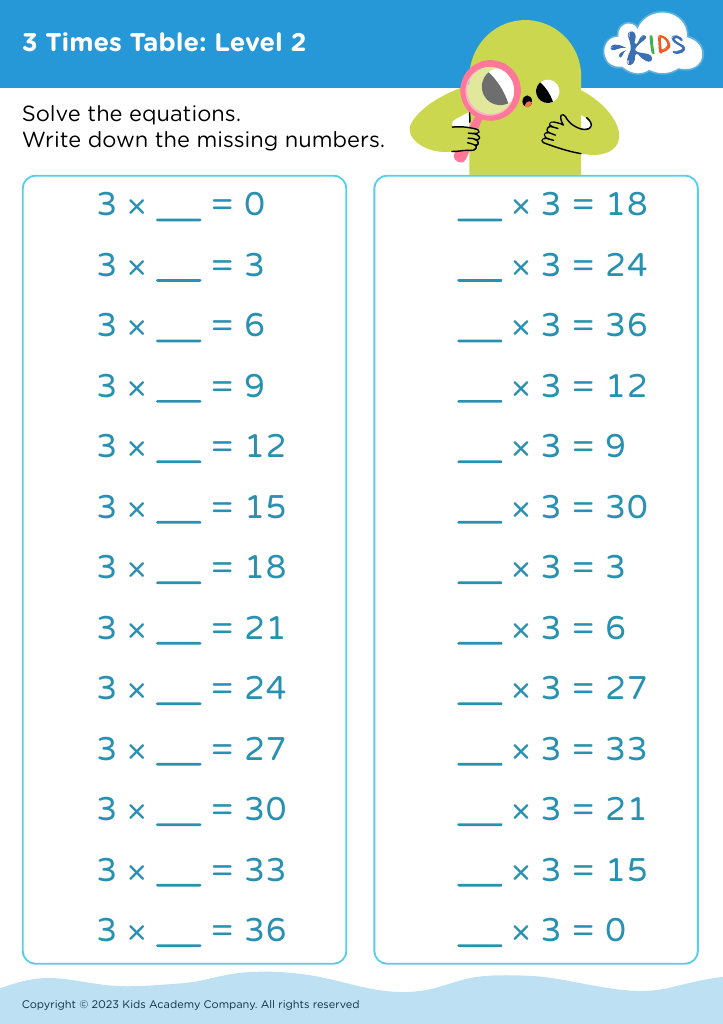
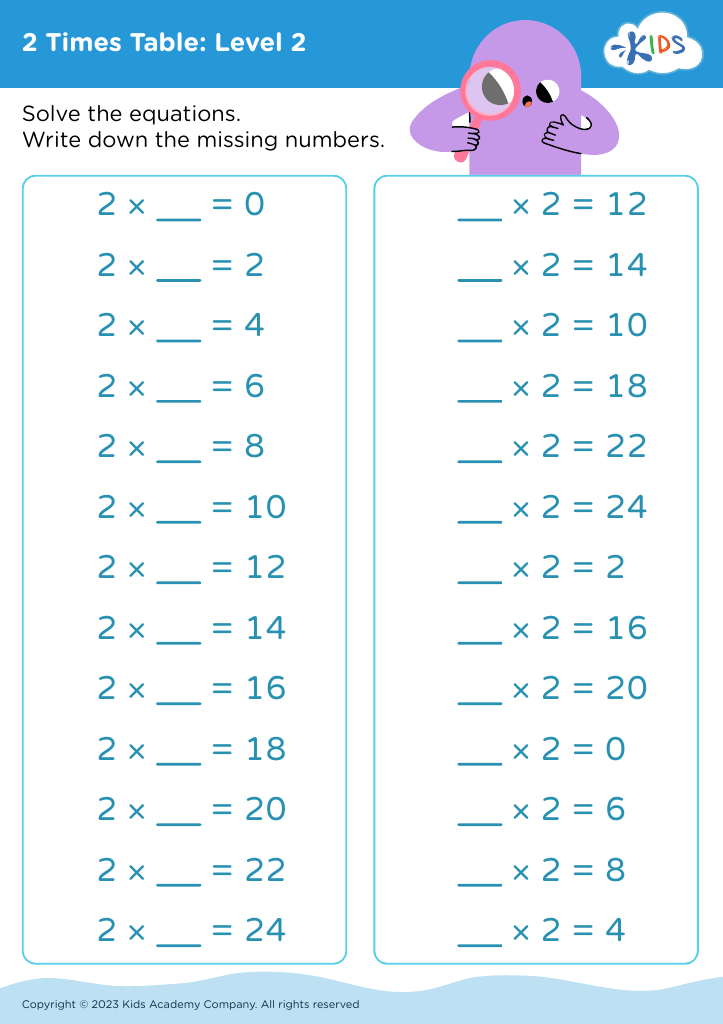





.jpg)









